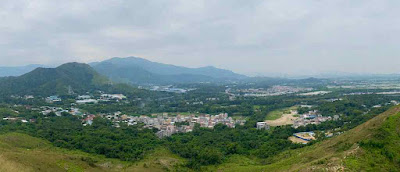The first trip to Rwanda and our subsequent collaboration taught us a lot of things.
First of all, we had heard that we would be going to a community center for youths, run by African Enterprises; and that they want us to build a computer laboratory and run some computer classes for the children. This we would have been very happy to do, since we have had some experience with that in other places such as Gansu in China and Cambodia. As time progresses, however, AE Rwanda convinced us that we could make greater contributions spending at least part of the time training their staff on using the Internet, particularly social networks like Facebook, so that they can do a better job serving the people of Rwanda. Once we arrived, there were other discoveries - their computer network was in such a poor state that part of our team spent several days fixing their computer network, and installing a Virtual Private Network for them. And we spent several days training their staff in using the VPN as well as the Internet. As a result, AE staff can communicate over the network over the whole country much more efficiently. For that AE was very grateful. They told us that other overseas team usually bring them gifts of “things”; buy we brought their people skills that they can use.
Thought these experiences, we learnt that in order to be really helpful, we have to be willing to listen, and to serve in ways that people really need it. Of course, in order to meet a real need, we have to have good, practical skills in the first place. We were very happy that we brought some very good students this time - students with both good skills and great attitude. We have to change their assignments so many times, often asking them to do things that they have not learnt before. They then have to improvise and learn quickly something that they have to do or teach in the following day. And our students proved equal to the task!
We observed a number of vivid examples of what AE meant, when they told us that sometimes the service provided by well-meaning people, often at great cost, do not really address a real need. One day, we happened to pass by a computer laboratory of a local university, right next to the primary school where we were working. There were ~40 computers that were set up neatly on clean and tidy work benches. For 3 days we could not see anyone using those computers at any time. Those computers were donated by some well-meaning overseas donors. For some reason, they were not being used. Based on past experience, the most probably reason is that they university does not know how to make use of them; perhaps they do not have teachers who can teach computer classes. It is also possible that they were afraid the student might misuse or damage the computers. The sad things, in a few years time, the computer would still be brand new, but have become obsolete and unusable. In the mean time, no one is benefiting from the computers put together at great cost.
AE believes that it is the people that is important. They are very keen on helping their people to set up co-operatives, to learn to start small businesses, to do the accounting, to plant passion fruit, to run a public toilet, to raise bees, to set up a butcher’s shop, to build fish farms, to set up kindergartens, ... The strategy is not to give the co-operatives a lot of money - AE does not have a lot of money to hand out anyway. But AE is training them on the necessary skills to manage money and to run the businesses - something that is much more valuable in the long run.
We believe in the same thing. Hence our values align, and our strengths complementary. AE Rwanda has built up a strong network and cultivated a self-reliant and cooperative attitude. We can bring skills and technology that empower the youths and villagers, building on the foundation that AE Rwanda has developed. This is proving to be a very successful partnership because we share the same values, yet each side is contributing something that the other side needs.
More of this story will follow.





















